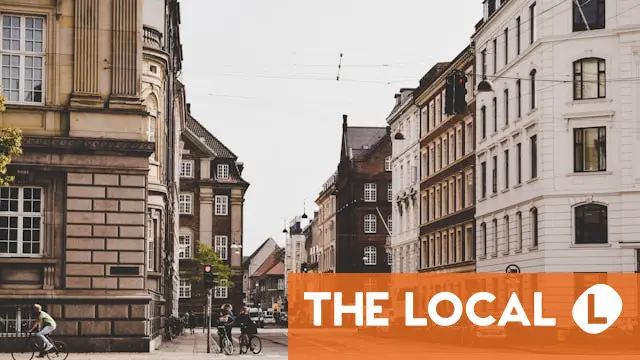It’s getting easier to get a mortgage in Denmark, but not for everyone, and with several countries now saying they will recognise Palestine, where does Denmark stand? Our column Inside Denmark takes a closer look at the stories we’ve been talking about this week.
Mortgage trend is good news for home buyers but only outside of Copenhagen
An updated analysis for 2025 this week offered the surprising conclusion that it’s getting easier to be approved for a mortgage in most of Denmark, with the notable exception of Copenhagen.
The news is surprising because house and apartment prices are rising, a trend driven by increasing salaries and and declining interest rates, leading to higher demand.
But the lower interest rates compared to 2024 also mean the demands placed on banks when looking at mortgage applications are somewhat lower, because the overall income needed to cover the mortgage repayments is now a little less.
This has offset, or even outstripped, higher property prices in the vast majority of Denmark.
Unfortunately though, this is not the case in Copenhagen, where prices have gone up far more in the last year than they have anywhere else in the country.
In fact, if you want to buy a home in the capital you’ll now need to earn almost 300,000 kroner than you did last year (for the “average” sample household used as the basis for the calculations).
Although interest rates are now making it a bit easier to get a mortgage overall, this is another piece of news that shows Copenhagen is becoming more and more inaccessible to the average earner.
READ ALSO: What income do you need to buy a home in Denmark in 2025?
Denmark noncommittal after other countries say they will recognise Palestine
Prime Minister Mette Frederiksen this week declined to comment on whether Denmark will join other countries which have recently said they will recognise Palestine as a state, thereby keeping Denmark in a noncommittal position.
Asked whether Denmark is now any closer to recognising Palestine, Frederiksen avoided a direct answer and referred the question to the foreign ministry.
Advertisement
Denmark’s stance came into question as the UN said there is “mounting evidence of famine and widespread starvation” in Gaza, where humanitarian access has been severely restricted by Israel.
The recognition of a Palestinian state has been advocated by supporters of the move as a way towards longer-term security in the region.
Over the last week France, Canada and the UK have all announced their intention to recognise Palestine. Elsewhere in Europe, Norway, Spain and Ireland already recognise the state.
Another Nordic country, Finland, on Friday became the latest nation to join that list, with Finnish President Alexander Stubb saying he is ready to approve a recognition of a Palestinian state if the government moves forward with such a proposal.
Denmark’s position when it comes to Palestinian statehood remains ambiguous.
Advertisement
Foreign Minister Lars Løkke Rasmussen last week told Ritzau in a written comment that he wants progress toward a two-state solution, but said he was unsure whether recognising a Palestinian state “at this moment brings us closer to that goal.”
Although she avoided directly stating the government’s position on recognising Palestine, Frederiksen said Denmark is prepared to consider increasing pressure on Israel if the Israeli government does not “make the necessary and right decisions.”
More broadly, Frederiksen has previously said Denmark could join EU sanctions against Israel, which have not yet materialised.
While she called for full humanitarian access and an end to the fighting in Gaza, Copenhagen is yet to cross the line from official statements to concrete action in its efforts to persuade the Israeli government.
